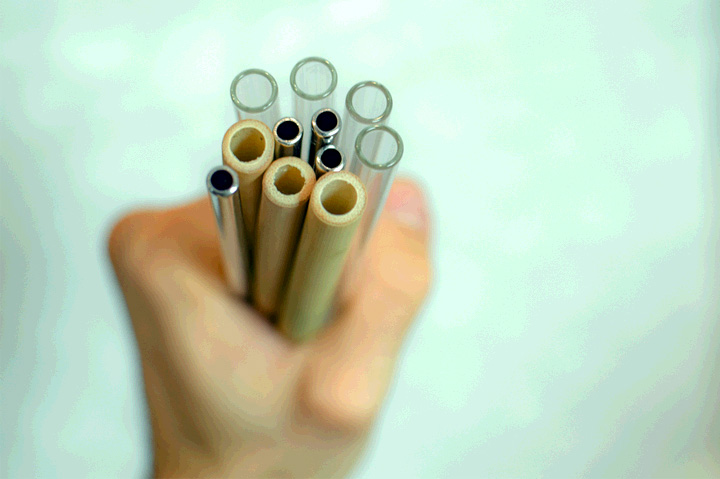September 06, 2023
Study Finds ‘Forever Chemicals’ in Paper, Bamboo Straws
Reusable stainless-steel straws did not contain PFAS, according to the recent research.
Certain paper and bamboo drinking straws are more likely to contain “forever chemicals” than traditional plastic straws, according to recently released research.
Scientists in Belgium looked at dozens of straw brands – made from paper, bamboo, glass, stainless steel and plastic – available at grocery stores and tested them to see whether they contained per- and polyfluoroalkyl substances (PFAS), a family of chemicals that’s often been used to create water-repellent and nonstick coatings on products. The chemicals, which don’t break down in the environment, can contaminate water sources, and research has linked exposure to certain PFAS with cancer, thyroid disease and other health problems. Many states have taken efforts to ban or restrict forever chemicals from products.

The results, recently published in the Food Additives and Contaminants journal, found that paper straws were the most likely to contain PFAS, with the chemicals detected in 18 out of 20 brands tested by scientists. Four out of five bamboo straw brands contained PFAS. Three out of four plastic and two out of five glass straw brands contained PFAS.
The good news, particularly for promotional products companies that offer reusable stainless-steel straws, was that scientists didn’t find PFAS in any of the metal straws analyzed.
The Belgian study built on a 2021 U.S. study that also discovered PFAS found in straws made from plant-based materials. Authors of the new study say it’s unclear whether manufacturers are intentionally adding PFAS as a waterproof coating to straws or if the chemicals end up there inadvertently during the manufacturing process.
The study concluded that plant-based straws “are not necessarily a more sustainable alternative to plastic straws, because they can be considered an additional source of PFAS exposure in humans and the environment” and that “the most sustainable alternative seems to be stainless-steel straws, which can be reused, do not contain PFAS and can be fully recycled.”
Experts say individual users don’t necessarily need to panic about the risk of using bamboo or paper straws, since it’s likely only a very small source of exposure; however, the findings should be of concern to manufacturers, Graham Peaslee, a professor at the University of Notre Dame who studies PFAS, told NBC News.
“All the straw manufacturers should take warning and say, ‘Hey, do we use this stuff?’ Because at the moment, they’re not even asking that question,” he said.
Plastic straw bans came into vogue a few years ago, because they can’t be recycled and end up in landfills or oceans and other waterways, risking the lives of sea creatures. California, Colorado and New York are among the states that have banned plastic straws from food establishments, and restaurants like Starbucks have phased the items out. The bans also brought opportunity to the industry, which could offer branded reusables as an alternative. In fact, ASI named reusable straws the Product of the Year in 2019.

Promo for the Planet is your destination for the latest news, biggest trends and best ideas to help build a more sustainable and socially-responsible industry.
